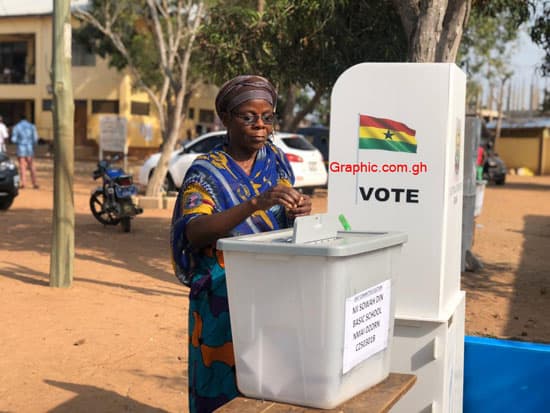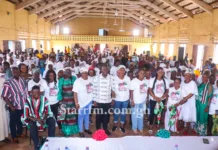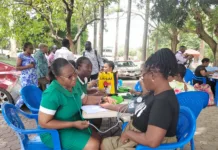
Advancing Human Security Since 2001
The current representation of Ghanaian women in the local government structure is disdainful to women, who constitute more than half of the country’s population. Women reportedly form less than 5% of the current assembly membership in district, municipal and metropolitan assemblies across the country. FOSDA’s detailed analysis of the membership of about 61 local assemblies confirms the situation, putting women’s participation and representation in terrible shape considering their contribution to national development.
It is globally acknowledged that women’s empowerment and incorporation of their interests into all aspects of society are crucial to attaining true democracy and accomplishing sustainable national development goals. Despite all the evidence showing the benefits of active women’s participation in decision-making worldwide, Ghana has continuously recorded high gender inequality in decision-making at local and national levels. Ghana has hardly achieved the globally recommended 30% gender representation in public decision-making.
Ghana practices a decentralized governance system, including a local government system that takes power and control closer to the people. The local government is composed of municipalities, metropolitan and district assembly level government that plays a crucial role in the functioning of a country’s political and administrative system. Its importance lies in several key aspects, such as proximity to the people, tailored policies, fiscal responsibility, economic development, and decentralization of power. Citizens’ involvement, especially women’s participation in local governance, ensures that diverse perspectives and experiences are considered in decision-making processes in the country, leading to more comprehensive, inclusive, and sustainable policies and development that address the needs of all Ghanaians.
FOSDA’s Gender analysis of the current representation in 61 local assemblies across the country shows that out of 1,214 elected members in these 61 Municipal assemblies, only 63 (5.19%) are female elected members, which is far less than the sub-Saharan average of 25% women. This figure (63) is shored up measurably by the 150 women appointed by the President of the republic according to section 15 of the Local Government Act, 2016 (Act 936). The 150 appointed assembly women constitute 26.4% of the 569 assembly members appointed in the 61 analyzed assemblies. In total, women, therefore, constitute 213 (11.9%) of the total 1,783 assembly members (elected and appointed) of the 61 local assemblies analysed.
Our analysis also revealed that some districts still needed to elect women to their local assemblies. Assemblies such as Klorley Klottey, Ashaiman, Wa East, Wa West, Ahanta West, East Mamprusi, Kwahu East, and Suhum district assemblies in Accra were among several districts nationwide that elected zero females in the last local elections in 2019.
Additionally, the Commonwealth Local Governance forum disclosed that in Ghana’s 2019 district assembly elections, only 909 female candidates contested, while 17,601 male candidates contested across the sixteen regions. Also, at the Unit Committee level, 3,751 women contested, while 34,769 men contested.
The underrepresentation of women at the local level mirrors the situation at the national level. For instance, out of the 275 MPs, only 40 are women constituting 15%. According to the Inter-Parliamentary Union, Ghana scored poorly in 2021 for political empowerment, ranking in the bottom 25% worldwide.
Despite Ghana being a signatory to many feminist frameworks such as the SDGs, the CEDAW convention, and the African Union’s (AU) strategy on gender equality and women’s empowerment, Ghana is far from achieving gender parity in all decision-making bodies, especially considering that women make up most of the population (50.7%). Moreover, Ghana was one of the first African nations to buy into an affirmative action policy to establish a minimum quota of 40% for women’s participation in any national agency.
Our analysis of the situation points to some immediate causative factors to the underrepresentation of women in local assemblies in Ghana. They include persisting traditional beliefs and perceptions about the role and place of women in society, illegal politicization of the local government elections, high cost of elections in Ghana, and lack of an affirmative action law.
Other factors are the lack of support from political parties, unfavorable electoral systems, and fear of violence and harassment since female candidates may face threats of violence and harassment during campaigns. In addition, time constraints and family responsibilities are also considered factors for underrepresentation, especially since women bear a disproportionate burden of family responsibilities, making it challenging for them to balance personal life with political engagement. Finally, a lack of mentorship and networking for women in politics can make it difficult for aspiring women to navigate the political landscape successfully.
The upcoming local government elections, slated for October 2023, present a golden opportunity for Ghana to address the underrepresentation of women in local governance and uphold the approaches recommended in local and international frameworks the country has signed on to.
FOSDA urges the government, through the appropriate ministries and agencies, development partners and civil society organisations to deliberately invest and take actions to encourage and promote women’s participation in decision-making processes. The passage of Ghana’s Affirmative action bill is long overdue and urgently needs to be passed to improve women’s participation.
Empowering women in local government is a matter of justice and equality and a catalyst for positive social change and progress on multiple fronts: a cardinal factor for democracy.
By Foundation for Security Development in Africa (FOSDA)
Source: Ghana/Starrfm.com.gh/103.5FM



